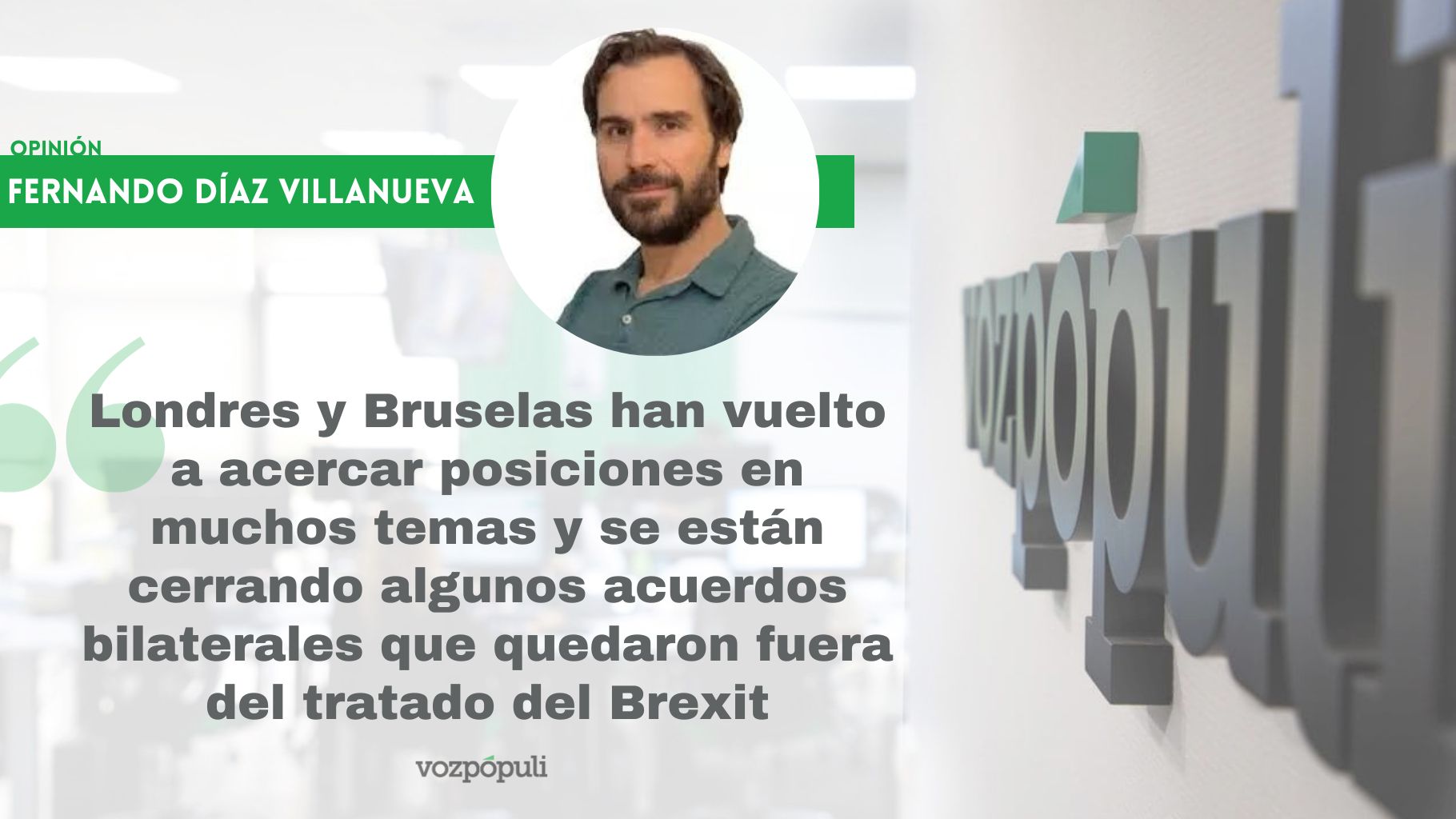The invasion of Ukraine It has turned the geopolitical map of the entire world upside down, something that seemed stable and even immutable. But everything is subject to change at any time. It only takes something moderately serious to happen for everything to turn upside down. The war in Ukraine has been that something. Since the war is being fought in Europe and closely involves all European countries, the matter had to entail consequences of all kinds. We have been suffering from energy issues for a year and a half. in the form of higher gas and oil prices. The political consequences were substantiated not in an interruption, but in the freezing of relations between European countries and Russia. The embassies have not been closed (at least not yet), but it is common to hear that so many European diplomats have been expelled from Russia and vice versa accused of espionage.
These short-term consequences bring about longer-term ones. European countries are united by two great alliances: one of a military type, the I’LL TAKEin which almost all of them are integrated except for some exceptions such as Austria, Ireland and part of the Balkans. And another of a political and economic nature: the European Union, which also brings together almost all the countries of Europe with the exception of certain countries in the Balkans, Norway and the United Kingdom, which was part of the Union until it decided to leave on its own. own foot after the 2016 Brexit referendum.
Today the EU has 27 member states. In 20 of them the euro is the official currency and all of them except Ireland, Romania and Bulgaria are part of the so-called Schengen zone, an area of free movement without border controls. Countries that are not in the EU such as Switzerland, Norway and Iceland have been joining the Schengen zone. The central core is made up of the countries that are part of the EU, the euro and Schengen, a group of 20 States that have the most weight, especially two of them, Germany and France, followed by Italy, Spain and Poland. Without the support of those five it is difficult to move forward with anything. despite the fact that in the European Parliament the deputies are not grouped by nationality, but by political affinities.
London and Brussels have once again brought closer positions on many issues and some bilateral agreements that were left out of the Brexit treaty are being closed.
For the last seven years, the entire political life of the European Union has revolved around Brexit. That meanta crisis of legitimacy of the European project which led to an identity crisis. The negotiations were tough and, at times, in the face of a dog. The United Kingdom opted for a hard Brexit and now, almost four years after its final departure, it seems that little by little harmony reigns again. London and Brussels have once again brought closer positions on many issues and some bilateral agreements that were left out of the Brexit treaty are being closed.
After the Brexit crisis came the invasion of Ukraine, a war of aggression, unjustifiable from any point of view, being fought at the very doors of the EU. Ukraine, let us not forget, shares a long border with the Union: 613 km. with Rumania542 kms. con Poland136 kms. con Hungary y 97 kms. con Slovakiaa total of 1,400 kms of borders that have awakened Europe from a long lethargy. They thought in Brussels that nothing would change, but it has, and in what way.
The war, insofar as it is a war, had a first consequence in the form of the expansion of NATO at the request of two new countries, Finland y Sweden, who had remained scrupulously neutral for decades. Finland is already in, Sweden will be in as soon as Turkey gives its approval, something that will happen in the coming months. NATO enlargement would have been unthinkable just two or three years ago when this organization was being questioned. Many wondered if it was still necessary in a continent at peace and with no threats in sight. Something similar has happened with the European Union. The project was in crisis after Brexit, Euroscepticism gained momentum and many analysts doubted that it could continue growing.
Well, that is what they are considering now. At the summit in Granada, this very thing, enlargement, was debated. The project, which has been announced for months (although not very loudly because there is resistance) is extremely ambitious. It contemplates the entry of Moldova, Serbia, Montenegro, Kosovo, Albania, North Macedonia and Ukraine, that is, all that remains of Eastern Europe except for Belarus. There is also talk of incorporating Georgia, but not Turkey, whose accession negotiations were frozen years ago and have not been restarted because there is no will on either side.
They want the process to begin seven years from now, in 2030, and extend throughout the decade. It will start with the most “assimilable” countries such as Montenegro and Macedonia
If done in one fell swoop, going from 27 members to 35 or 36 would be the second largest enlargement in history after 2004, when the EU took a big leap, incorporating ten new members from Estonia to Cyprus. In 2007 Bulgaria and Romania joined and in 2013 Croatia. There was a lot of criticism for the latest expansions. It was said, for example, that the great expansion of 2004 came at the cost of greater integration of those who were already part of it. But the truth is that there was no other option. That Europe that had been on the other side of the Iron Curtain had been waiting for many years and could not (nor should they) be denied entry.
It is unlikely to be done in one fell swoop. They want the process to begin seven years from now, in 2030, and extend throughout the decade. It will start with the most “assimilable” countries such as Montenegro and Macedonia, which are already in NATO and which, in the case of Montenegro, unilaterally adopted the euro years ago, and then continue with the others. The most difficult piece to fit is Ukrainea country that is at war, that will emerge very damaged from it and that, before it was invaded, was not even considered as a candidate since it was considered to be too large, too poor and with too many unresolved problems with Russia.
The war has radically changed the approach. In 2021, no one in Brussels wanted to hear about Ukraine joining the EU because that would create problems with the Kremlin. A year later they gave him candidate status because those problems had led to a large-scale invasion. But even if the war ends in unmitigated defeat for Russia and Ukraine regains its complete independence, the fact is that post-war Ukraine will be much poorer than before and will have to be rebuilt. The cost will be very high.
All candidate countries have, to a greater or lesser extent, serious problems that do not exist within the Union. They are countries significantly poorer than the European average
Let us remember that, except for the European portion of Russia, Ukraine is the largest country in Europe above France and Spain. We would then have to consider whether the cost of absorbing Ukraine or leaving it out is greater and whatever God wants. That is the question that member countries have to ask themselves.
Ukraine is the most indigestible slice, but not the only one. All candidate countries have, to a greater or lesser extent, serious problems that do not exist within the Union. They are countries significantly poorer than the European average. They are in all cases below the EU members with the lowest per capita income such as Bulgaria or Romania. In addition to that, in some cases they have problems at their borders. Moldova, for example, has a rebel republic on its northern border, Transnistria, supported by Russia since the 1990s. Georgia has not controlled two regions since 2008, Abkhazia and South Ossetia. In both places there are puppet republics of Moscow without international recognition. Kosovo also became independent from Serbia in 2008. and there are still several EU countries that do not recognize it as an independent State, among them are Spain, Greece and Romania.
As we see, there are many pending issues that have not even begun to be resolved and that raise disturbing questions: Would Georgia give up the two regions in the hands of Russia?Or Moldova to Transnistria? Would Spain and Greece recognize the independence of Kosovo? All of that is up in the air, but it is not the only thing that should be discussed.
Going from 27 to 35 or 36 members would mean alterations in the internal functioning of the Union and in the distribution of cohesion funds that go from the richest countries to the poorest. The new members are so poor that they would absorb those funds, making the current 27 members net contributors. They would take a good part of the subsidies, especially agricultural ones. In almost all cases these are countries with a very powerful agricultural sector. that if the borders are opened wide it would put farmers in other member countries such as Poland, which in this competes directly with Ukraine, in trouble. The Eastern countries will complicate enlargement, demand compensation and impose conditions that the new members may consider unaffordable.
Perhaps the time has come to rethink the Commission so that it stops being a cage of crickets and becomes an executive body that can make decisions much more quickly
A separate case is the issue of decision-making, something that has been bothering Brussels since it began to expand towards the east. The commission, the executive body of the Union, is made up of a college of commissioners of 27 members, one from each country. If the number of members increases to 36 they will have to increase it, making things even more difficult. Perhaps the time has come to rethink the Commission so that it stops being a cage of crickets and becomes an executive body that can make decisions much more quickly. But that would force national representatives to be left out of the Commissionsomething that would meet opposition, especially among small countries.
Another reform that they would have to undertake would be to eliminate national vetoes on certain issues. Nowadays many issues are agreed upon unanimously which leads to endless negotiations and sometimes a final agreement is not even reached and all the time spent negotiating is wasted. Eliminating the vetoes will surely be welcomed by large countries like Germany, France or Italy, but for small ones like Malta or Slovenia it is almost the only way to be heard.
In short, there is a lot left to do, more than the Euro-optimists would like. Strengthening the European integration project is always good news, but it must be done in a realistic and calculated way, trying to avoid that the expected benefits are not below the costs of adding new members. The absorption capacity of the European Union is necessarily limited, both in space and in time.
2023-10-07 03:03:59
#labyrinth #latest #enlargement


